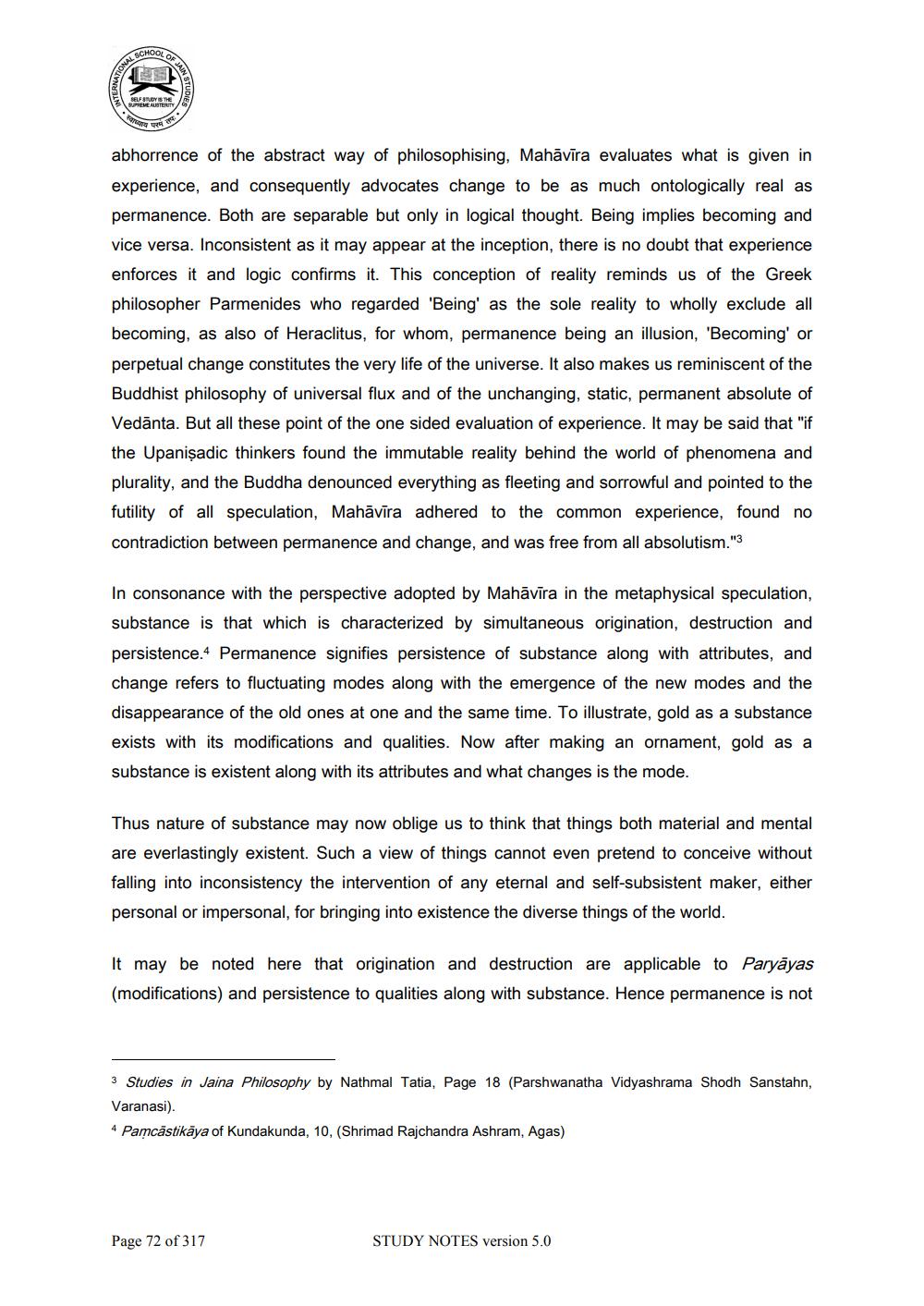________________
SCHOOL
TIONAL
OF
AN STUDIES
SELF STUDY IS THE SUPREME AUSTERITY,
ध्याय परम
abhorrence of the abstract way of philosophising, Mahāvīra evaluates what is given in experience, and consequently advocates change to be as much ontologically real as permanence. Both are separable but only in logical thought. Being implies becoming and vice versa. Inconsistent as it may appear at the inception, there is no doubt that experience enforces it and logic confirms it. This conception of reality reminds us of the Greek philosopher Parmenides who regarded 'Being' as the sole reality to wholly exclude all becoming, as also of Heraclitus, for whom, permanence being an illusion, 'Becoming' or perpetual change constitutes the very life of the universe. It also makes us reminiscent of the Buddhist philosophy of universal flux and of the unchanging, static, permanent absolute of Vedānta. But all these point of the one sided evaluation of experience. It may be said that "if the Upanisadic thinkers found the immutable reality behind the world of phenomena and plurality, and the Buddha denounced everything as fleeting and sorrowful and pointed to the futility of all speculation, Mahāvīra adhered to the common experience, found no contradiction between permanence and change, and was free from all absolutism."3
In consonance with the perspective adopted by Mahāvīra in the metaphysical speculation, substance is that which is characterized by simultaneous origination, destruction and persistence.4 Permanence signifies persistence of substance along with attributes, and change refers to fluctuating modes along with the emergence of the new modes and the disappearance of the old ones at one and the same time. To illustrate, gold as a substance exists with its modifications and qualities. Now after making an ornament, gold as a substance is existent along with its attributes and what changes is the mode.
Thus nature of substance may now oblige us to think that things both material and mental are everlastingly existent. Such a view of things cannot even pretend to conceive without falling into inconsistency the intervention of any eternal and self-subsistent maker, either personal or impersonal, for bringing into existence the diverse things of the world.
It may be noted here that origination and destruction are applicable to Paryāyas (modifications) and persistence to qualities along with substance. Hence permanence is not
3 Studies in Jaina Philosophy by Nathmal Tatia, Page 18 (Parshwanatha Vidyashrama Shodh Sanstahn, Varanasi).
4 Pamcastikāya of Kundakunda, 10, (Shrimad Rajchandra Ashram, Agas)
Page 72 of 317
STUDY NOTES version 5.0




